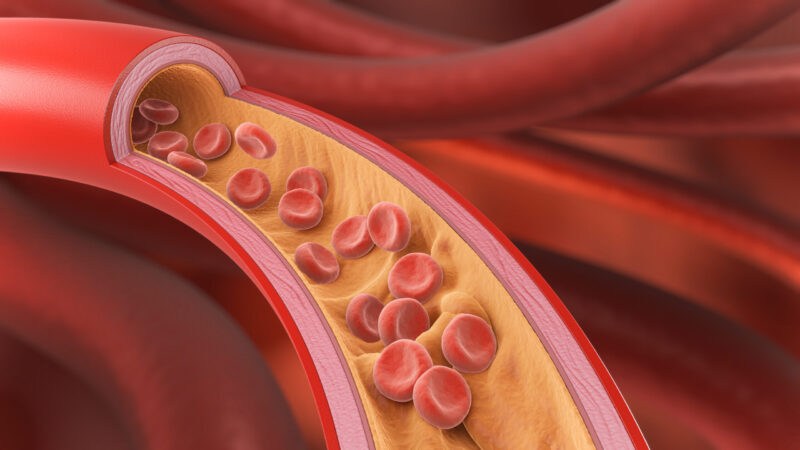
Cholesterol is often overlooked when we think about our heart health. We need it in our blood to help us stay healthy, but if your levels are high it can cause serious health problems.
You may not know that your cholesterol is high because it often has no symptoms. But it can have a big impact on your heart health, as it can increase your risk of developing cardiovascular disease, heart disease or stroke.
In the UK, high cholesterol is linked to one in five cardiovascular disease deaths. In England, more than half of adults are estimated to have cholesterol levels above what’s recommended.

This National Cholesterol Month, Neil Magee, advanced nurse practitioner and system clinical lead for cardiovascular health at NHS Mid and South Essex, talks about “good” and “bad” cholesterol, lifestyle changes that can help reduce levels and if you’re concerned, how to get checked.
What is cholesterol?
Cholesterol is a fatty substance that is found in the blood. It is often misunderstood as we do need it so that the cells in our body function properly. It also helps with digestion, making Vitamin D and making hormones to keep your bones strong.
“Good” cholesterol (HDL) helps to reduce excess cholesterol from your blood. But high levels of “bad” cholesterol (LDL) can build up in your arteries, which reduces blood flow, and increase your risk of serious health conditions. These include:
- heart disease
- heart attack
- stroke or mini stroke
- peripheral artery disease – when blood flow to your legs is reduced.
Who is more at risk?
There are some factors that you can’t change, which may mean you are more likely to develop high cholesterol and other serious health conditions:
- age – the risk increases for people aged 50 and over
- gender – men are more at risk than women
- menopause – the drop in the oestrogen hormone levels can lead to high cholesterol levels
- family history – high cholesterol can run in families
- ethnic background – people of Black African, Black Caribbean or South Asian background are at higher risk.
Health conditions including diabetes or high blood pressure can also increase your risk.
What can you do to lower cholesterol levels?
Making lifestyle changes can help to lower your chances of high cholesterol or reduce your levels. There is support to help you:
- stop smoking
- cut down on alcohol
- keep active
- have a healthy balanced diet
- maintain a healthy weight.
Heart UK has a 1-2-3-4-5 Food Challenge, giving you tips and recipe ideas that can help lower your cholesterol.
It’s important to keep taking any prescribed medicines to help manage high cholesterol. If you’re not sure if the medicine you’re taking is working effectively or you’re experiencing side effects, please book a review with your GP or practice pharmacist first – don’t stop taking your prescribed medicines. Your GP or practice pharmacist can help you make sure any prescribed medicine is right for you.
Where can you get your cholesterol checked?
Your cholesterol can only be tested via a blood test. You can have a cholesterol test:
- if you’re over 40 years old – this is part of your NHS Health Check
- if you have a family history of high cholesterol
- as part of your medication review if your GP has said you have high cholesterol.